My heart fell into a deep pit in my stomach. I couldn’t escape the painful feeling of a punch into the gut. But the truth is this wasn’t about me. It was about my son.
He came home from playing at the park with his friends…bawling.
The tears were coming so fast, I could barely understand what he was saying.
He fumbled through the words. “They…they…they said I couldn’t…I couldn’t play with them anymore.”
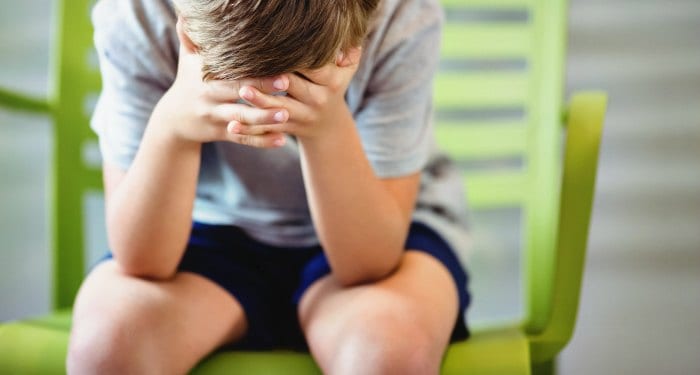
Flashes of my own childhood came up.
The pain of rejection from my elementary years crept into my mind. I thought about all the times I was tormented for having red hair and freckles. The times I was told I was not accepted as part of the group. And how I felt completely powerless and alone in those moments.
It hurts. Growing up hurts.
And when our kids hurt. We hurt.
Here’s the hardest part.
Kids don’t need you to make them feel better. They need you to listen and sit beside them in the tough moments. I desperately wanted to fix this for him and erase his pain. My own childhood self was commanding me to do so.
Instead, I held back because my job as a parent isn’t to calm him down, fix his emotions or stop them altogether. My job is to facilitate his emotions in a way that allows him to process his own feelings and mend his own heart.

You see, I’m raising him to leave me.
There’s going to be a time, when I’m not going to be there to lovingly attempt to fix or erase his pain, and he’s going to need to know how to do it for himself.
I could’ve said…You’re so much better than them. They don’t know what they’re missing. Or everything happens for a reason. Or this too shall pass. I could’ve gone so far as to tell the other kids they needed to include him. I could’ve created a patch for his pain.
But here’s the thing.
All kids will continue to communicate until they feel heard and understood. When kids are communicating something, they desperately need to express it. If they don’t get to express it, just like a volcano, their emotions will start to spill over into other areas. It can spill over into mealtimes or bedtime or at the grocery store. Or it can spill over into adulthood.
My son curled up into the chair.
I walked over to him and nuzzled beside him in the oversized chair in the living room. Taking a deep breath, I decided to embrace the painful feeling of a punch into the gut. I left my heart in the pit of my stomach and quietly said, “You wanted to play with them. It’s hurts. It really really hurts.”
I just stayed there with him in that moment and allowed him to feel his upset. Every urge inside my body wanted to fix it. I held back, not even allowing the words “It’s okay” to pass through my lips. I rubbed his head and hugged him.
After I while, he calmed down and let out a huge sigh. It seemed like he was done, but what solidified peace was the words he spoke next: “I’m okay. I’ll go play with someone else.”
I can only hope.
One day he’s going to be all grown up. Being the heroic protector now is only putting a bandaid on a hurt that can become a gaping wound later in life.
I won’t be there to tell others they need to include my kid, or to tell his college professor he deserved a better grade, or tell him “everything’s fine” when he doesn’t get the job and have him actually believe me.

But I will be there to listen.
He needs me to listen, so he can learn to mend upsets and solve problems for himself.
If you asked me to not fix my child’s upset before I started to use Language of Listening®, it wouldn’t have happened. I would’ve swooped into fix it. Hands down.
Now instead, I use a simple 3-part parenting framework to guide me. The best word I can use to describe it is relief.
Relief that I can use 3-parts in every situation and know that it’s always right for the moment.
Here’s how it works.
- SAY WHAT YOU SEE® without teaching, judgement, fixing or asking questions in your interactions with your child.
- If you see something you like, name a STRENGTH.
- If you see something you don’t like, name a CAN DO.
When you love your child, you’ll do anything to help them feel better. We only want what’s best for them!
Turns out, the best thing is to stand beside them during their most painful and difficult emotions, trusting, again and again, that they are capable problem-solvers and emotionally strong enough to work through a challenge all on their own.
Print this free listening checklist.
This post comes with a free printable checklist to help with listening. I always have the hardest time remembering these phrases. This printable simplifies it!
Here is a sneak preview…
Download Your Free Printable
- Download the checklist. You’ll get the printable, plus join 37,000+ parents who receive my weekly parenting tips and ideas!
- Print. Any paper will do the trick, but card stock
would be ideal.
- Place it on your refrigerator. Check things off as you go and don’t forget a thing!
Want more on parenting?
- How to motivate kids and get the behavior you want
- 2 year old not listening? Try this remarkable tip.
- 10 game changing phrases that will get your strong-willed child to listen
- How to end screen-time without a struggle
I've created a free email series just for you! If you are struggling with teaching your child to listen, this series will help transform your parenting. Yes, really. I've seen my proven strategies work time and time again for parents. I know it can work for you too.
After taking my free email series, you will:
- Learn simple, yet highly effective listening strategies
- Experience a stronger connection with your child
- Enjoy more peaceful parenting days
- Gain more cooperation from your child

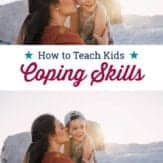
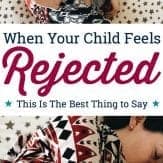
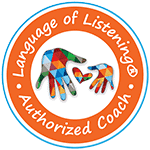
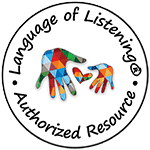
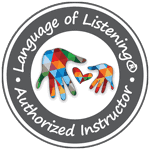


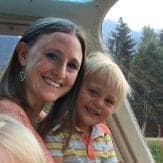


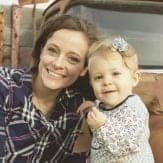
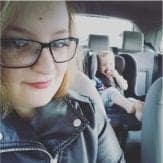


Lauren,
I’m near tears reading this! You were fully there for him and the reassurance and resolve came from within him. He will carry that for life. So beautiful!
And this is simply brilliant: “If they don’t get to express it… it can spill over into adulthood.” Wow! So insightful.
Sandy
I completely agree with your approach of not fixing everything. My son is starting elementary and it kinda scared him of the change the school is much bigger than the daycare he’s used to. I will be using this approach. Thanks for being such a strong mama! Keep up the good work!
Thank you. My son is only 3, but experienced this type of rejection for the first time today. It’s so hard to watch our babies be hurt or treated unfairly. I wasn’t sure how to handle it. I pretty much just did as you described. How nice to come across this post tonight & feel some validation for my approach.
I saw your pin for this post on Pinterest and it really grabbed me. I have a 9-year-old son who went through something similar this week and it was gut-wrenching.
I did in fact, tell him they were jerks and that he would make better friends. I tried my best to comfort him. He was heart-broken.
In hindsight, I can see how listening and just being there for him would have been much better allowing his emotional intelligence to guide him.
Good Post! Next time I will be more thoughtful and considerate of what I say and how I respond!
“I’m raising him to leave me.” What do our children need to be able to survive without us? That is a powerful thought that could guide much of our parenting. And that they need to be heard and understood or emotions will spill over. I believe that is true for all of us. Thank you for sharing your insight.
Beautifully written piece. I lead parenting workshops and use the book, How To Talk So Kids Will Listen and Listen So Kids Will Talk. The importance of listening, acknowledging and holding their pain/difficult emotions, is critical; and yet so hard to do for parents, who with only good intention, want to run in and fix the problem. Hence – we’re at an all time crisis: helicopter parenting. And therefore our kids are growing up ‘skill-less’ with how to deal/cope with disappointment and the inevitable challenges of life, both big and small.
Thank you. I am having so much difficulty with this. It`s so hard to see your child be rejected. Your piece inspired me.
This is how talk therapy works. Reading this took me back to the time I was in therapy, and this is how my amazing therapist healed my wounds from the past. By acknowledging and listening. Not “fixing” with words. I have a 2 year old and 8 month old son, and hope to be able to apply this when necessary.
Thank you for the reminder 🙂
I really loved this article and yet am at odds with some of the comments. I grew up in a tough area. There were a lot of physical altercations. The kids were not helicopter parented at all. Parents rarely interfered. They were left to their own devices in many social situations without guidance at all.
While I agree with a lot of what people are saying, I have seen parents watch while their older children are bullying younger ones who don’t even have the capacity or maturity to understand what is happening, all in the name of not being helicopter parents.
My only real point is that there’s a balance and modeling that needs to happen. It’s not always wise to let children act however they choose just so you aren’t perceived as a helicopter parent.
DixieChix, you’re absolutely right. Ignoring a behavior is never helpful to the child. And since all kids will continue to communicate until they feel heard and understood, they will have no choice but to take their communication elsewhere when you ignore it OR escalate their communication with you. It sounds like the important missing pieces you’re alluding to are both a supportive listening role AND boundaries. Children need both. As parents when we see something we don’t like, we must intervene, hold boundaries, and provide a structure and framework that all children need for healthy growth. In your example of a younger child being bullied, it would start with SWYS – validation – and holding space for the child to feel. The next part is “There must be something you can do!” and leaping into problem-solving with the child once they are ready. This empowers the child to see that when they are in a situation they don’t like, they can actually do something about it, rather than feel resigned and powerless over it.
Thank you for writing, this is so true. It takes great will power just to stay and allow the child to work through it and it takes intentionality to let it go knowing that God is using it for good building significant character. Helping a child remain human!